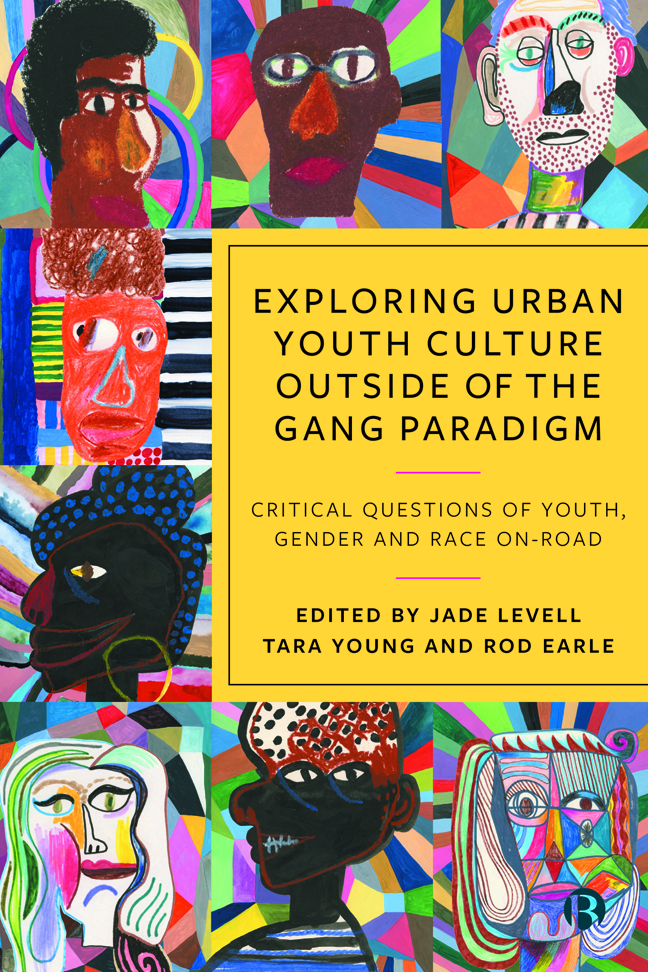 Exploring Urban Youth Culture Outside of the Gang Paradigm
Exploring Urban Youth Culture Outside of the Gang Paradigm Book contents
- Frontmatter
- Contents
- Notes on Contributors
- Foreword
- Preface
- 1 Introduction: Youth and On-Road – Making Gender and Race Matter
- 2 Black, British Young Women On-Road: Intersections of Gender, Race and Youth in British Interwar Youth Penal Reform
- 3 Tainted Love: Intimate Relationships and Gendered Violence On-Road
- 4 (The) Trouble with Friends: Narrative Stories of Friendship and Violence On-Road
- 5 The Sexual Politics of Masculinity and Vulnerability On-Road: Gender, Race and Male Victimisation
- 6 The Road, in Court: How UK Drill Music Became a Criminal Offence
- 7 On-Road Inside: Music as a Site of Carceral Convergence
- 8 Jeta e Rrugës: Translocal On-Road Hustle, Within and from Albania
- 9 ‘He's shown me the road’: Role Model and Roadman
- 10 Diary of an On-Road Criminologist: An Auto-Ethnographic Reflection
- 11 Conclusions, Compromises and Continuing Conversations
- Index
7 - On-Road Inside: Music as a Site of Carceral Convergence
Published online by Cambridge University Press: 24 January 2024
- Frontmatter
- Contents
- Notes on Contributors
- Foreword
- Preface
- 1 Introduction: Youth and On-Road – Making Gender and Race Matter
- 2 Black, British Young Women On-Road: Intersections of Gender, Race and Youth in British Interwar Youth Penal Reform
- 3 Tainted Love: Intimate Relationships and Gendered Violence On-Road
- 4 (The) Trouble with Friends: Narrative Stories of Friendship and Violence On-Road
- 5 The Sexual Politics of Masculinity and Vulnerability On-Road: Gender, Race and Male Victimisation
- 6 The Road, in Court: How UK Drill Music Became a Criminal Offence
- 7 On-Road Inside: Music as a Site of Carceral Convergence
- 8 Jeta e Rrugës: Translocal On-Road Hustle, Within and from Albania
- 9 ‘He's shown me the road’: Role Model and Roadman
- 10 Diary of an On-Road Criminologist: An Auto-Ethnographic Reflection
- 11 Conclusions, Compromises and Continuing Conversations
- Index
Summary
Introduction
The character and dynamics of urban space play an important role in the lives of young men on-road and recent studies have illuminated the ways in which urban geography can foster forms of identity and affiliation (Reid, 2017; White, 2020). While urban localities or ‘hoods’ can engender pride, belonging and ‘care’ (White and Ilan, 2021), they can also be confining, limiting young people's opportunities and forcing them into narrow forms of gendered subjectivity (Reid, 2017). Across many communities, urban regeneration has played a central role in manifesting this encroaching sense of entrapment with young people increasingly priced out of housing, barred from the labour market and excluded from the physical spaces they used to freely inhabit (Reid, 2017; White, 2020). White (2020) has recently documented the effects of gentrification on Black, working-class, urban communities, describing the ways in which young people's sense of belonging is challenged by urban redevelopment which favours middleclass consumers, leading to what White describes as ‘social and economic segregation’ (2020: 60).
Within this increasingly bleak neoliberal landscape young people have less access to legitimate sources of employment and status and feel increasingly disconnected from their wider communities. It is within this context that Billingham and Irwin-Rogers (2021) suggest feelings of insignificance and alienation can lead young people into criminal enterprise and violence to retrieve a sense of ‘mattering’. As Wacquant (2001) has noted, the withdrawal of government support from the most vulnerable and marginalised regions of neoliberal societies has tended to be matched with an increasingly punitive approach to criminal justice. The aggressive policing and criminalisation of young Black men in inner-city areas enforces these spatial demarcations leading many into contact with the criminal justice system. As Fatsis (2019) has argued, the discourse of gang warfare has played a crucial role in characterising young Black men as a threat to be contained and the intensive policing of disadvantaged areas has led to the continued overrepresentation of Black people in both youth and adult prison estates (Lammy, 2017).
In the face of political, spatial and cultural exclusion experienced by Black people, White (2020) has argued that music represents an important means of resisting marginalisation and forging significant connections to their lived environment.
- Type
- Chapter
- Information
- Exploring Urban Youth Culture Outside of the Gang ParadigmCritical Questions of Youth, Gender and Race On-Road, pp. 115 - 133Publisher: Bristol University PressPrint publication year: 2023


